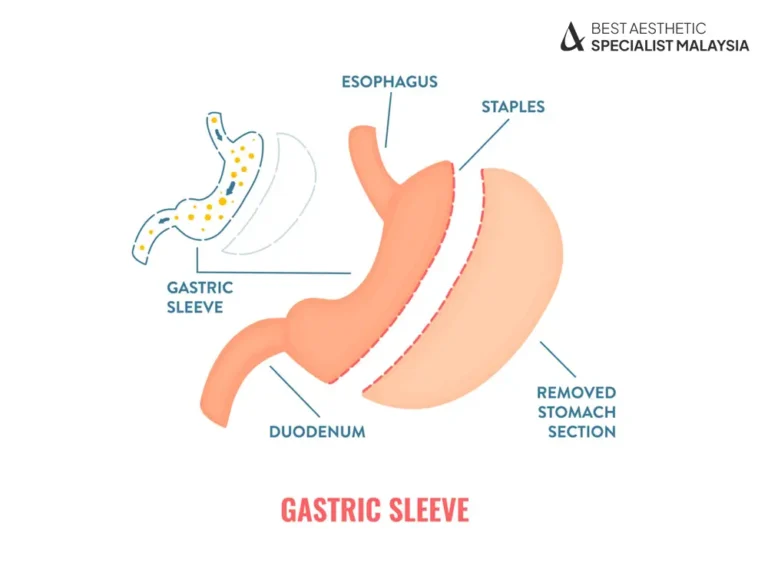Bariatric surgery can be a transformative journey for those struggling with obesity. However, the real work begins after surgery, where patients must adapt to new dietary habits, physical activity levels, and emotional challenges. In Malaysia, where the prevalence of obesity is increasing, understanding how to navigate life post-surgery can significantly enhance long-term success.
Understanding Your New Normal
Bariatric surgery alters your digestive system, making it crucial to adjust your lifestyle accordingly. Here are some essential tips to thrive after surgery:
Nutritional Changes Post-surgery, your body needs nutrient-rich meals. Focus on incorporating lean proteins, fruits, vegetables, whole grains, and low-fat dairy into your diet. This balanced approach is vital for recovery and long-term health.
Mindful Eating One significant change is the need for portion control. Practice mindful eating by consuming smaller meals and paying attention to your body’s hunger cues. Eating slowly and chewing food thoroughly can help you feel full without overeating.
Stay Hydrated Adequate hydration is essential for recovery and overall health. Aim to drink at least 64 ounces of non-caloric beverages daily, but try to separate your fluid intake from mealtimes to avoid discomfort.
Maintaining a Healthy Diet
Adhering to a strict dietary regimen is crucial for success after bariatric surgery. Here are some strategies to ensure you maintain a healthy diet:
Meal Preparation Planning your meals ahead of time can help you avoid unhealthy choices. Consider dedicating a day to prepare healthy meals and snacks for the week. This way, you will always have nutritious options available.
Avoid Trigger Foods Certain foods can be challenging to digest after surgery, such as high-sugar and high-fat items. Stay clear of carbonated beverages, alcohol, and foods that may cause gastrointestinal discomfort.
Supplementation Due to changes in nutrient absorption, supplementation is often necessary. Regular blood tests can help monitor your vitamin and mineral levels, allowing for adjustments as needed.
Incorporating Physical Activity
Exercise is a key component of a successful post-bariatric lifestyle. Engaging in regular physical activity helps maintain weight loss and improves overall well-being.
Start Slowly Begin with low-impact activities such as walking, swimming, or cycling. Gradually increase the intensity as your body adapts.
Set Realistic Goals Setting achievable fitness goals can keep you motivated. Consider joining local fitness groups in Malaysia to stay engaged and make exercise a social activity.
Stay Consistent Aim for at least 150 minutes of moderate-intensity exercise weekly. This commitment will help reinforce your new lifestyle.
Building a Support Network
Support is vital during the transition to life after bariatric surgery.
Join Support Groups Connecting with others who have undergone similar experiences can provide emotional support and practical advice. In Malaysia, there are various support groups available online and in-person, offering a sense of community.
Counseling Addressing the emotional aspects of weight loss is crucial. Consider speaking with a mental health professional to navigate the psychological changes that come with significant weight loss.
Educate Yourself Take advantage of educational resources from healthcare providers. Understanding the changes your body is undergoing will empower you to make informed decisions.
Monitoring Progress and Adjusting Goals
Keeping track of your progress is essential for long-term success.
Regular Check-Ups Regular consultations with your healthcare provider can help monitor your health and address any concerns.
Celebrate Non-Scale Victories Weight loss is just one measure of success. Celebrate improvements in energy levels, mobility, and overall health.
Adjust as Needed Be prepared to modify your diet and exercise regimen based on your progress and lifestyle changes.
Conclusion
Life after bariatric surgery in Malaysia requires a commitment to change, both physically and emotionally. By focusing on nutrition, exercise, support networks, and regular monitoring, you can navigate this new chapter successfully. Remember, it’s not just about losing weight; it’s about embracing a healthier lifestyle that fosters long-term well-being. Embrace the journey, stay patient, and celebrate every achievement, no matter how small. Your new life is waiting for you!



